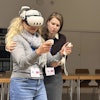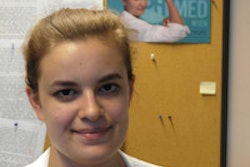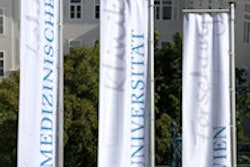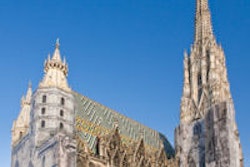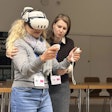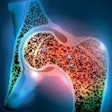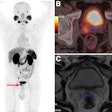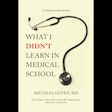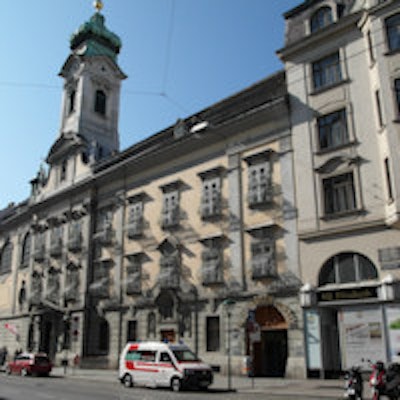
VIENNA - For the second time in a month, public-sector radiologists and other physicians in Vienna have voted overwhelmingly to strike, adding extra fuel to a protracted conflict with hospital managers and the city government over pay and working hours.
Vienna's medical chamber, which represents more than 3,800 doctors at public hospitals, announced on Thursday that 93.45% of physicians participating in the electronic ballot backed a strike call. Some 58%, or 2,214 medical staff, took part in the ballot between 19 and 24 June.
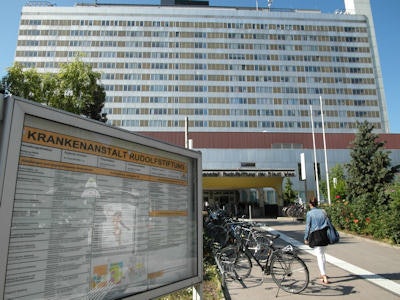 Doctors at Vienna's public hospitals, which include the Krankenanstalt Rudolfstiftung, voted overwhelmingly to strike over compensation.
Doctors at Vienna's public hospitals, which include the Krankenanstalt Rudolfstiftung, voted overwhelmingly to strike over compensation.The vote comes 30 days after physicians working at the Medical University of Vienna's clinical hospital, the Allgemeines Krankenhaus (AKH), backed a strike call by a nearly identical margin. However, a last-minute pay agreement averted a likely walkout by physicians, who, unlike their public hospital colleagues, are employees of the federal government.
There was no immediate comment from either the Vienna Hospital Association (KAV) or the city government. KAV, which manages some 10 city-owned medical centers, has staunchly defended the 67 million euro compensation package it has offered its medical staff. The KAV issued an earlier statement saying its offer adequately compensates both young and experienced doctors, including "financially attractive" terms for weekend and holiday shifts. KAV officials have accused the medical chamber of issuing misleading information about the pay negotiations.
The chamber has demanded top-ups -- ranging from 200 to 300 euros -- for each weekend, night, or holiday shift, calling the proposals on the table inadequate.
Sonja Wehsely, a social democrat who is the city's health councilor, has rejected the demand, saying it would cost another 25 million euros. She told the daily Die Presse last week, as the chamber's vote began, that no additional money would be forthcoming and the chamber's demands risked unsettling other deals reached with medical staff in Vienna and nationally.
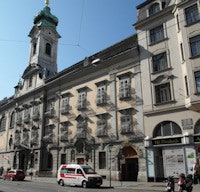 Physicians at Vienna's faith-based hospitals, including St. Elisabeth pictured here, reached overtime pay deals earlier this year.
Physicians at Vienna's faith-based hospitals, including St. Elisabeth pictured here, reached overtime pay deals earlier this year.Physicians arriving for work on Thursday morning at one public hospital, the Rudolfstiftung, deferred all questions about the strike vote to the medical chamber.
Chamber leaders have called a meeting for 1 July to determine how to proceed, according to a statement. Dr. Thomas Szekeres, president of the group, told AuntMinnieEurope.com during the previous strike vote that the chamber wanted avoid any action that would disrupt medical care, but said if a decision were made to walk off the job, it would be "orderly." He said it would most likely involve reducing outpatient services, including nonemergency radiology, but emergency treatment would not be affected.
The labor unrest stems from Austria's compliance with the EU's Working Time Directive, which sets a 48-hour maximum working week for health workers, even though many doctors traditionally worked well beyond that. Most public medical facilities in Austria agreed to boost base pay for physicians and other medical staff to compensate for lost overtime, but disputes delayed agreements at Vienna's public medical centers and the university hospital.
Public doctors took to the streets in March to demand higher base pay and better overtime compensation, complaining that reduced workweeks would cost them money. KAV physicians are also concerned about plans to consolidate older medical facilities into a 954-million euro hospital being built on the city's north side, fearing the shift would lead to staff reductions at a time of growing demand and a population spike in the city of more than 1.8 million.
Public service doctors are also concerned that current compensation, which is lower than in some other wealthy EU countries, is encouraging younger internists and specialist physicians to look for work elsewhere.
Staff at Vienna's public hospitals has followed their colleagues at the Medical University of Vienna's clinical hospital (AKH) in calling for a strike. But a walkout was averted at the AKH on 26 May when doctors signed off on a compensation agreement that includes:
- A one-off 8,000 euro payment to every doctor this year, a 20% across-the-board increase in pay starting on 1 January 2016, followed by an additional 10% in 2019
- More input on management decisions
- The hiring of 85 new staff to assist doctors and nurses with paperwork, administrative duties, and routine medical testing of patients
Physicians got "two-and-a-half out of three" of their demands, Dr. Martin Andreas, a chief negotiator in the talks, told AunMinnieEurope.com after the deal was struck. The management offered the lump-sum payment in lieu of the 20% pay increase, retroactive to 1 January 2015 that doctors had sought.



